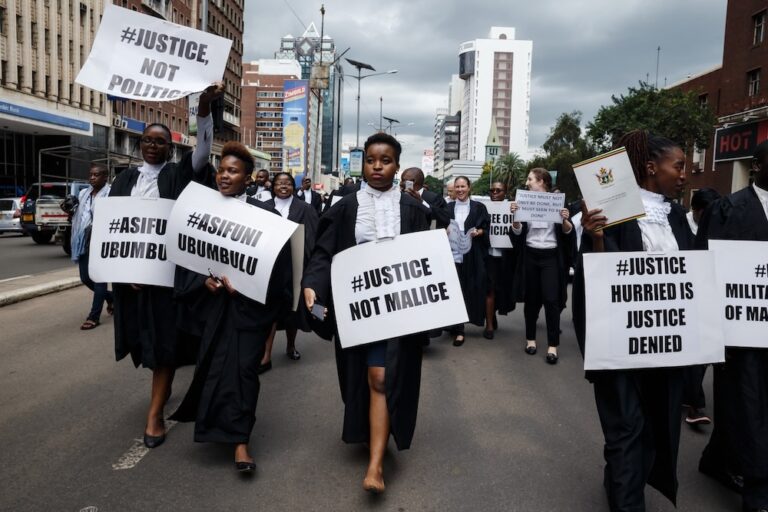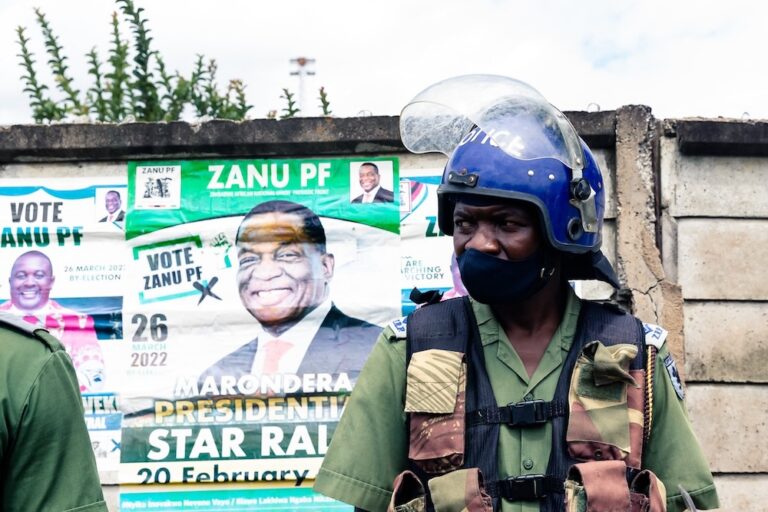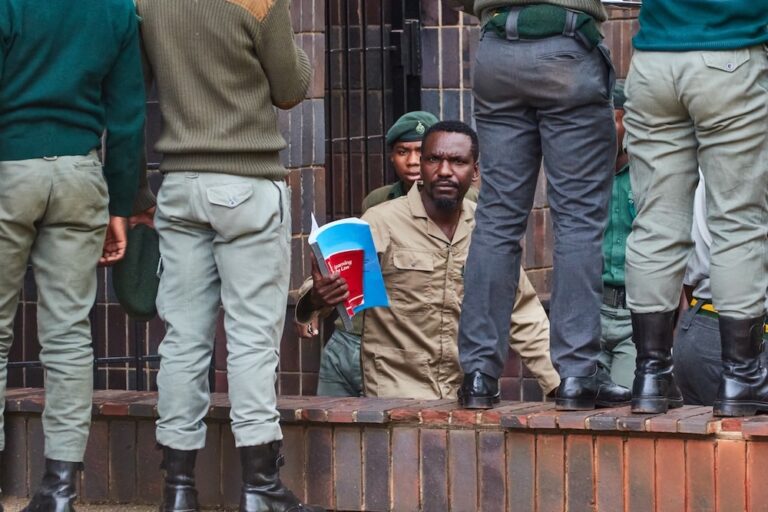(MISA/IFEX) – Zimbabwe’s main opposition party, the Movement for Democratic Change (MDC), is reported to be seeking the services of Police Commissioner Augustine Chihuri to investigate the editor of the state-owned newspaper, “The Chronicle”. The party is accusing editor Stephen Ndlovu of having written falsehoods in a story that appeared on 22 April 2002. On […]
(MISA/IFEX) – Zimbabwe’s main opposition party, the Movement for Democratic Change (MDC), is reported to be seeking the services of Police Commissioner Augustine Chihuri to investigate the editor of the state-owned newspaper, “The Chronicle”. The party is accusing editor Stephen Ndlovu of having written falsehoods in a story that appeared on 22 April 2002.
On 29 April, “The Herald” reported that MDC lawyers Gill Godlonton and Gerrans wrote a letter stating that the contents of a story entitled “Extreme Terror” were false. The report also notes that the MDC has requested an investigation, in accordance with the Access to Information and Protection of Privacy Act. This is the first time the act is being used by a political party since it was enacted.
“[Under] the circumstances and on behalf of our clients, we hereby lodge a complaint with you [with] respect [to] the attached article and would be grateful if you [would] urgently investigate this matter [fully] with a view to criminally prosecuting the editor of the newspaper,” reads the letter to Chihuri. A police spokesman confirmed that the letter had been received and investigations were underway.
The article in “The Chronicle” alleged that the MDC intended to march to the State House and bomb several tall buildings in Harare and Bulawayo. “An Ivory Coast Plan, in which thousands of MDC supporters were to be ferried at night in preparation for a march to the State House, was also on the cards,” reads part of the story.
However, “The Chronicle” has refused to retract the story, saying the MDC had plans to fast track its leader, Morgan Tsvangirai, into power through military means. The opposition party’s use of the Access to Information and Protection of Privacy Act was welcomed by the Department of Information and Publicity as a sign of the need for the draconian media law.
MISA-Zimbabwe and journalists’ organisations and unions in Zimbabwe remain opposed to the law, however. A constitutional challenge of some provisions of the act was already launched by foreign correspondents in Zimbabwe after the arrest of Andrew Meldrum, a correspondent for the British newspaper “The Guardian” (see IFEX alerts of 7, 3 and 2 May 2002).


